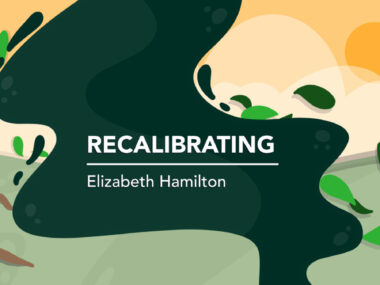How my mother prepared me for my daughter with FA
Her struggle with a disability taught me to better parent my child
Written by |

“It’s not accessible enough.” That thought passes through my mind regularly as I look at the world. Not because of my younger daughter, Amelia, who has Friedreich’s ataxia (FA), but because of my mother.
I’ve never fully understood my mother’s disability, and neither have many of the medical teams that have treated her, I suppose. Much of that treatment involved exploratory surgeries at a time when imaging technology was in its infancy. Her doctors spent decades trying to understand something they’d never seen in a femur. This mysterious condition resulted in my mother’s decreased mobility and ongoing pain.
I have childhood memories of my mother recovering from intense surgeries, knowing when the barometer was dropping because I saw signs of her increased discomfort. I recall caring church members bringing us tuna noodle casseroles, something I cannot eat to this day.
I know my mom worried about how this ailment might have hurt her parenting, but I think it did the opposite. It’s made me a better person and parent.
What my mother’s disability taught me
As an able-bodied, white individual, I have an easy time snuggling into a place of privilege and can have a deafened awareness of others who experience more barriers; it can be cozy and comfortable to be cognizant only of my own journey. But because of my mother, I grew up conscious about stairs and how doors opened, and I saw how those without my experience could be unaware of such barriers. Her experience has helped me stay awake and attentive to the needs of others.
Do I slip into that privileged space sometimes? Absolutely. But my mother’s journey taught me to recognize it and be mindful. A smiling face might be masking great pain. Taking a few steps sometimes comes with great focus and thought. Just because something is compliant with the Americans with Disabilities Act doesn’t mean it’s truly accessible for those with special needs.
My mother is good at powering through pain, which taught me to pick up on her subtle cues when she struggled. This skill has helped me better understand and care for Amelia.
At age 11, Amelia is becoming more aware of her needs and is learning ways to advocate for herself. It’s been a journey, and as a mom, I must often recalibrate how I’m watching and listening to her. Weighing how to be caring versus overbearing is a balancing act. Sometimes I do it incredibly well, and other times I fail epically. But as both my children like to say, “Practice makes progress.”
On this Mother’s Day, I want to take a moment to honor all mothers, especially those caring for others who face barriers to their social, emotional, or physical well-being. Whether the title of mom is born by the body or the heart, the love, care, and determined devotion given to your children are gifts.
To my own mother, thank you. I am who I am today for Amelia and her sister because you parented me.
Note: Friedreich’s Ataxia News is strictly a news and information website about the disease. It does not provide medical advice, diagnosis, or treatment. This content is not intended to be a substitute for professional medical advice, diagnosis, or treatment. Always seek the advice of your physician or another qualified health provider with any questions you may have regarding a medical condition. Never disregard professional medical advice or delay in seeking it because of something you have read on this website. The opinions expressed in this column are not those of Friedreich’s Ataxia News or its parent company, Bionews, and are intended to spark discussion about issues pertaining to Friedreich’s ataxia.






Leave a comment
Fill in the required fields to post. Your email address will not be published.